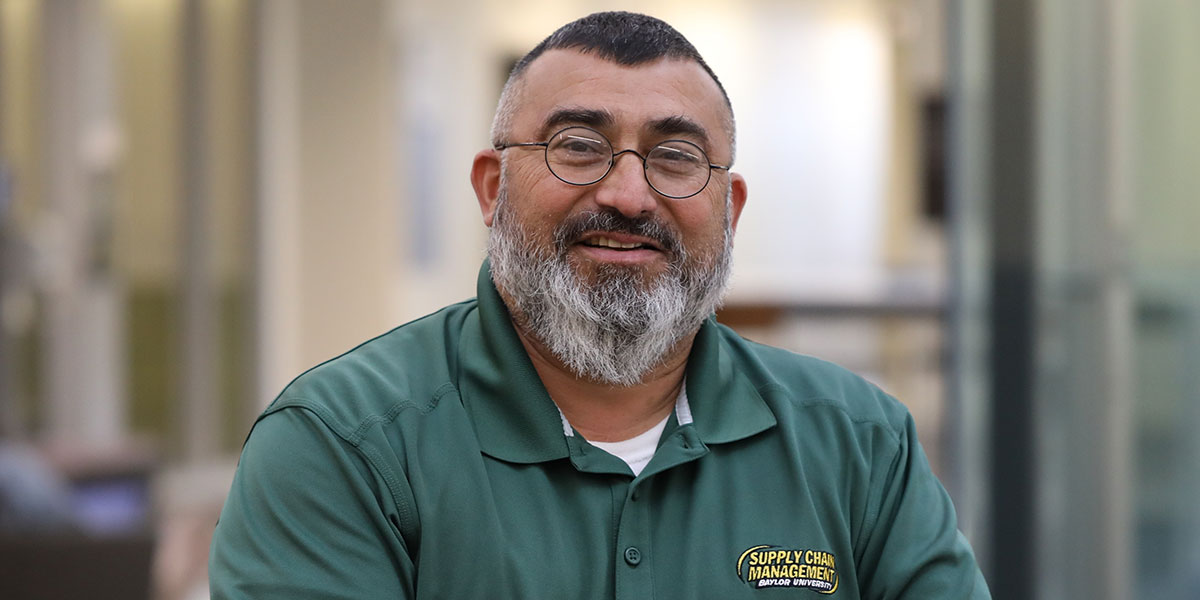Meet Baylor’s internationally recognized expert on supply chain management

Empty grocery aisles. Delayed deliveries. Items out of stock indefinitely. Chances are good you’ve experienced the effects of supply chain problems at some point recently.
It can be frustrating to understand why this happens, but there’s definitely a method to the madness. And Baylor has an internationally recognized expert on the topic.
When it comes to supply chain management, Dr. Pedro Reyes, associate professor of operations and supply chain management in Baylor’s Hankamer School of Business, has seen it all. From 9/11 and the COVID-19 pandemic to more common natural disasters, the supply chain is known to fluctuate. After all — a lot of steps go into producing the goods we buy: raw materials have to be found and transported to a factory, where they are turned into parts, which then must be combined into a product, which then has to make it to store. Troubles at any step in the process can cause the dreaded “supply chain problems” message.
In situations such as these, he stresses, patience is the key.
“The ‘chain’ involves specific and very complex decisions — the sourcing, making and delivering of those manufactured goods,” says Reyes. “Not all supply chains are created equally, which is where we get the inconsistencies. There’s no quick solution to it; we just have to be patient and work together where we can.”
[BONUS: Hear Reyes discuss the pandemic’s effect on the supply chain in Baylor Connections]
Reyes came to Baylor in 2003 after more than 25 years working in the industry in the Dallas area. His expertise has made him desirable as an expert witness, as a consultant to companies all over the world (such as Delta Airlines during its RFID implementation project), and as an expert source for media.
In the classroom, Reyes is passionate about preparing Bears for success. He balances his course material with his own research as well as hands-on activities, such as “The Supply Chain Puzzle Game.”
“Having worked as a supply chain professional, I’m able to base course content off of my experience,” he explains. “I also see myself as a student for life, since the landscape of the supply chain is always changing. So, the students and I learn together, in a way.”
Aside from teaching, Reyes also serves as an associate editor for the Decision Sciences Journal of Innovative Education. Here, he is able to learn from other colleagues and continue his own research, which involves how artificial intelligence and machine learning can be applied to (and perhaps remedy) the global supply chain crisis we’re experiencing today.
Sic ’em, Dr. Reyes!

